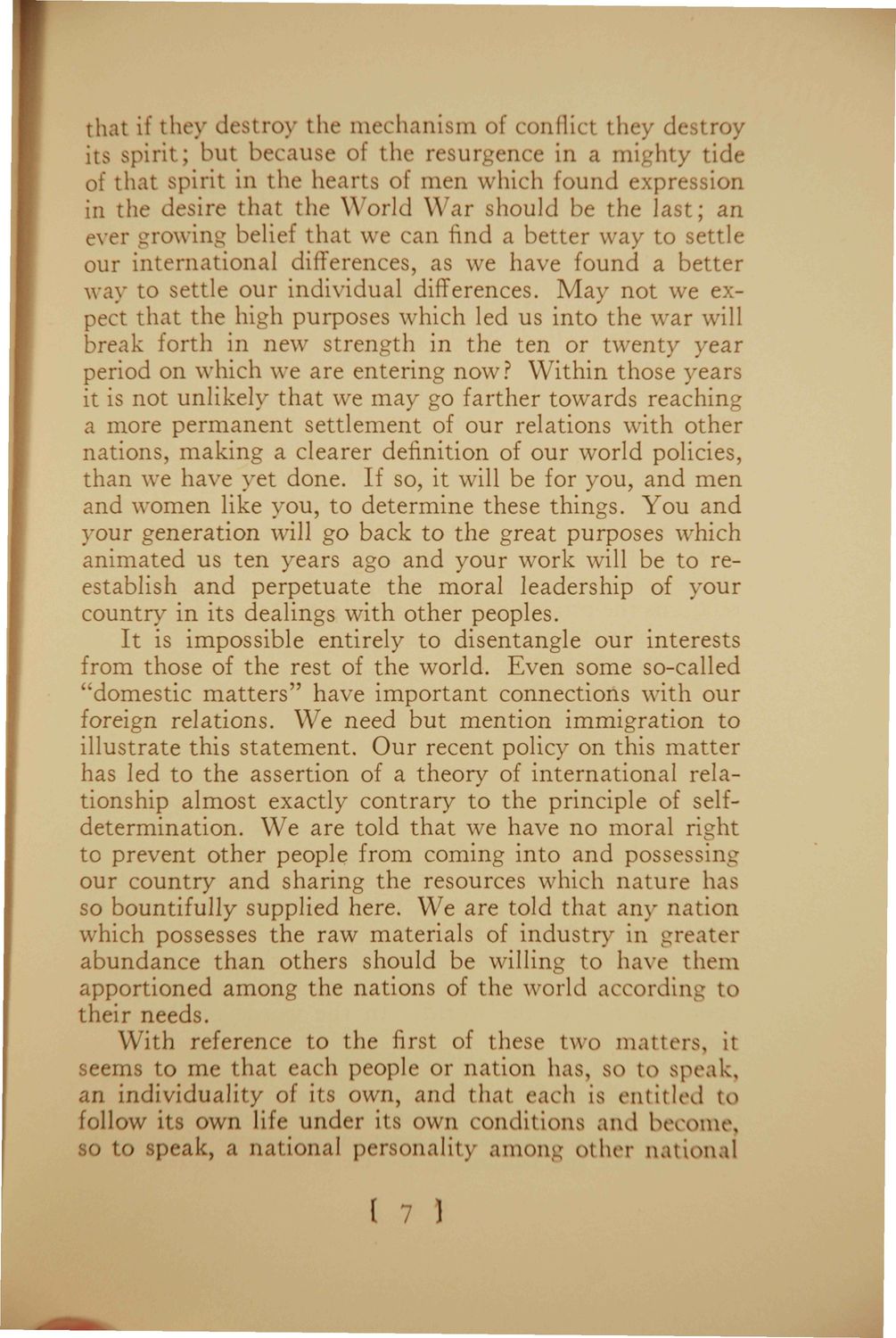| |
| |
Caption: Commencement - 1927
This is a reduced-resolution page image for fast online browsing.

EXTRACTED TEXT FROM PAGE:
that if they destroy the mechanism of conflict they destroy its spirit; but because of the resurgence in a mi hty tide of that spirit in the hearts of men which found expression in the desire that the World War should be the last; an ever growing belief that we can find a better way to settle our international differences, as we have found a better way to settle our individual differences. M a y not we expect that the high purposes which led us into the war will break forth in new strength in the ten or twenty year period on which we are entering now? Within those years it is not unlikely that we may go farther towards reaching a more permanent settlement of our relations with other nations, making a clearer definition of our world policies, than we have yet done. If so, it will be for you, and men and women like you, to determine these things. You and your generation will go back to the great purposes which animated us ten years ago and your work will be to reestablish and perpetuate the moral leadership of your country in its dealings with other peoples. It is impossible entirely to disentangle our interests from those of the rest of the world. Even some so-called ''domestic matters" have important connections with our foreign relations. We need but mention immigration to illustrate this statement. Our recent policy on this matter has led to the assertion of a theory of international relationship almost exactly contrary to the principle of selfdetermination. We are told that we have no moral right to prevent other people from coming into and possessing our country and sharing the resources which nature has so bountifully supplied here. We are told that any nation which possesses the raw materials of industry in greater abundance than others should be willing to have them pportioned among the nations of the world according to their needs. With reference to the first of these two matters, it seems to me that each people or nation has, so to speak, an individuality of its own, and that each is entitled to follow its own life under its own conditions and become so to speak, a nation,!I personality among other national t 71
| |